The idea of a magical product which fixes everything, and the aesthetic which accompanies it, and how we can tell that below the shiny surface something is very very wrong.
Yes I've been watching a shit ton of TV, I'm depressed.
Maniac (Tv series)
'Owen and Annie are tortured by a pharmaceutical company’s disastrous attempt to make talk therapy irrelevant by replacing it with three pills that allegedly wash away all your neuroses'
Set in a dystopian near future, the show makes us question the ethics of realities we already deal with by changing the slightly - it presents 'futuristic' concepts designed to make human life easier, but shows the dark side of them not working and malfunctioning.
One example is that people can earn a small amount money by having someone follow them around and read adverts to them. AdBuddy is a commentary on how we are constantly bombarded with adverts, especially through social media collecting personal our data to tailor the adverts we are shown. It's a literal representation of how we cannot escape advertising. By making it a way to earn money, it shows that people who are poor have even less control over the way they consume due to a lack of options. The person reading the adverts, or 'adbuddy', is also visibly poor, and comes across as desperate in their reading of the advertisements - this shows that both the people in this situation are being exploited.
An AdBuddy reads to an exhausted looking Owen.
To top this all off, AdBuddy is not an acceptable form of payment in many shops, which shows the futility of putting in so much effort in order to earn enough to survive.
The huge neon sign outside the singular window of Owens apartment is inescapable, and flicks between an advert for toothpaste and an advert for a sugary sweet - these two products clearly contradict one another, which suggests that whilst consumer culture provides us with answers for our problems, it also provides the problems in the first place.
As one blog puts it, "A New York ravaged by late–stage capitalism sets the show’s tone and serves as its backdrop. Diminutive Roomba–esque robots wander the streets, cigarettes and green computer screens are ubiquitous, and people sign up for dangerous drug trials to earn a quick buck. Corporations are everywhere and know the most intimate details of their customers’ lives." If you didn't know this was talking about a TV show, this could very easily be describing our real world.
"In essence, what director Cary Fukunaga has created is a funhouse mirror of our world, stretching its edges so as to show us its fault lines"
I like this show so much because I relate to it. Both main characters are mentally ill and exhausted by modern life. They don't want a magic quick fix, they want real human connection and friendship, something which we can often not make time for in our fast-paced, work-centric lives. I've been on anti-depressants for years, and whilst they help, they are not a magical fix. I can still not function in the way that all employers I've ever had want me to - 110% productivity rate, always smiling and raring to go! Capitalism leaves no space for workers to be human, and instead sees them as cogs in a machine. Many workplaces use modern technologies to effectively spy on their workers, calculating the worth of real humans through productivity figures (like Amazon tracking how fast warehouse workers move). It's exhausting and de-humanising.
Black mirror
I won't get into everything this show has to say as each episode is sort of stand-alone and it tackles a LOT of complex issues such as war, the afterlife and every ethical issue you can think of. What I will look at is Black Mirror's portrayal of modern technology as a solution to complex problems and how it often goes very wrong. Black Mirror does a good job showing us our own reality through a different lens by subverting ideas we take for granted.
"Black Mirror ... invites us to think about how technology can harm society and transform our behaviour. Each episode shows how an existing technology could evolve in the near future, for better, or especially for worse." (The Conversation)
These two shows both present us with a world which is similar enough to our own to be recognisable, but use subtle differences to indicate that something is not quite right... something is sinister. The sinister ideas are much the same as the ones in our own society; profit driven corporations, a lack of respect for workers, the use of drugs by workers to dissociate from reality - but they are presented in ways which slightly differ to our reality, which highlights them to us.
Wandavision
In this show, a woman with witchcraft powers creates a perfect life for herself and her husband, who is actually dead. She refuses to acknowledge her trauma and builds an idealised vision of suburban American life for her and her imagined family to live in - which due to her powers, is presented as reality. Each episode cycles through a different decade, and the show is presented as a sitcom - however, it is clear from the beginning that something is not right. In the middle of each episode, there is an advert break.
Each advert presents a consumer product in the typical style of that decade, with the people featuring seeming to live a perfect lifestyle, seemingly brought about by owning that product. It is well known that since mid 20th century, advertisers appealed to consumers not by talking about the merits of their products, but by appealing to peoples deeper desires and insecurities of their self image. These advertisements parody this perfectly.

Mad Men:
This show follows the lives of a group of people working in an Ad agency in New York in the 50s & 60s. The show depicts their glamorous, fast paced lives but also shows us the darker sides of their lives; alcoholism, loneliness, loveless relationships... One episode portrays this perfectly, when the main character and his wife and children pose for a Coke advert. The advert is quintessentially American, portraying the perfect nuclear family in order to sell consumer products. What watchers of the show will know however is that beneath this glossy facade, the husband is a serial cheater, the wife is having therapy and is depressed, and the daughter has behavioural problems.
Notable genres/ aesthetics:
Retrofuturism - Retrofuturism is a movement in the creative arts showing the influence of depictions of the future produced in an earlier era. If futurism is sometimes called a "science" bent on anticipating what will come, retrofuturism is the remembering of that anticipation.
Eg.
Cyberpunk:
Cyberpunk, as a genre, includes a wide variety of visual aesthetics but is recognised by its encompassing theme of "high tech, low life. Settings in the cyberpunk genre range from the richly colored, rough-around-the-edges urban jungles of Akira (1988), to the hyper-futuristic, neon cityscapes and bleak wastelands of Blade Runner 2049 (2017).
Themes used in cyberpunk media involve artificial intelligence, class uprising, governmental and corporate corruption, anarchy, gang warfare, and transhumanism. The range is broad but the cyberpunk aesthetic is often used to convey deeper meanings and commentate on modern society and sometimes predictions of our future society.
A photograph of urban living spaces lit by neon, location unknown.
A face mask.
Cyberpunk themes are often explored in Japanese anime and manga, such as Ghost in the Shell (1995).
Adverts in 'Wandavision'
Dystopian Advertising
These adverts are all real - no satire, no tongue in cheek.
There was outrage about the above advertisement when it came out last year ^
This has been made prevalent by the current pandemic - countless companies have used the virus as a way to sell products, although not without a fair amount of criticism.
Pepsi and Coke, two classic symbols of consumer culture and capitalism, attempt to profit from a global pandemic.
key points
- advertising presents us with an ideal life which we can achieve by purchasing products
- it ignores the structures which enforce inequality and actually cause the majority of unhappiness
- advances in technology promise to solve human problems, but fail to do so as they also ignore the structures which make us unhappy in the first place (capitalism, misogyny, institutional racism)

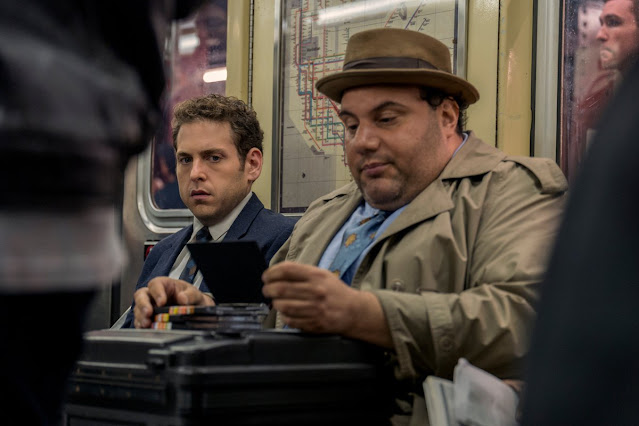


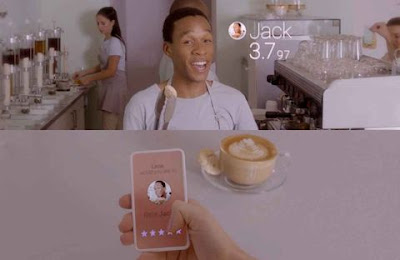




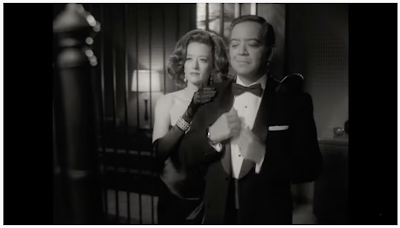











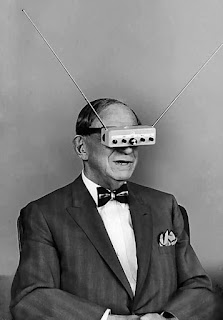






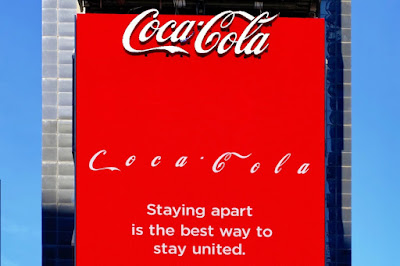

No comments:
Post a Comment